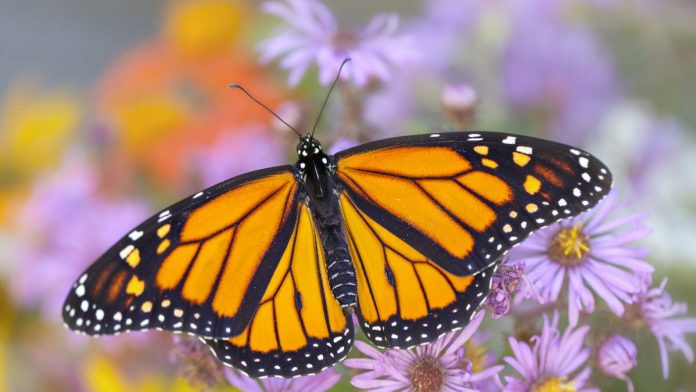The U.S. Fish and Wildlife Service has proposed listing the monarch butterfly as a threatened species under the Endangered Species Act. This move, announced on Tuesday (December 10), aims to protect the iconic butterfly, known for its striking orange and black wings, from further decline. The proposal includes designating 4,395 acres in coastal California as critical habitat for the western monarch population, which has seen a dramatic decline of over 95% since the 1980s.
The monarch butterfly’s population has been dwindling due to habitat loss, climate change, and exposure to insecticides. The eastern migratory population has decreased by about 80%, while the western population faces a 99% chance of extinction by 2080. The proposed listing would prohibit actions that harm the butterflies but allow activities that support their habitat, such as planting milkweed.
The public can comment on the proposal until March 12, 2025, and the final decision is expected by December 2025. The listing aims to encourage conservation efforts across the butterfly’s range, involving various stakeholders, including farmers and conservation groups.
“The iconic monarch butterfly is cherished across North America, captivating children and adults throughout its fascinating lifecycle. Despite its fragility, it is remarkably resilient, like many things in nature, when we just give them a chance,” said U.S. Fish and Wildlife Service Director Martha Williams. “Science shows that the monarch needs that chance, and this proposed listing invites and builds on unprecedented public participation in shaping monarch conservation efforts. Providing monarchs with enough milkweed and nectar plants, even in small areas, can help put them on the road to recovery. Working together, we can help make this extraordinary species a legacy for our children and generations to come.”
The proposal has been a long time coming, following a 2014 petition by conservation groups. The monarch’s potential listing highlights the urgent need for environmental stewardship to prevent further decline of this beloved species.

Recent Comments